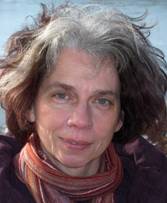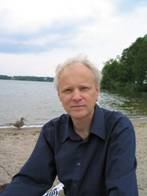|
TOWARD A SCIENCE OF CONSCIOUSNESS 2011 STOCKHOLM MAY 1-8, 2011 AULA MAGNA HALL
Plenary 6 WEDNESDAY MAY 4 8:30 am to 10:40 am
MENAS KAFATOS TARJA KALLIO-TAMMINEN PAAVO PYLKKANEN Chapman University Helsinki Helsinki
Menas Kafatos joined Chapman University in 2008 as the Vice Chancellor for Special Projects and is also Founding Dean of the Schmid College of Science, Director of the Center for Excellence in Applied, Computational, and Fundamental Science, and is a Fletcher Jones Endowed Professor of Computational Physics. He received his B.A. in Physics from Cornell University in 1967 and his Ph.D. in Physics from the Massachusetts Institute of Technology in 1972. After postdoctoral work at NASA Goddard Space Flight Center, he joined George Mason University and was University Professor of Interdisciplinary Sciences there from 1984-2008. He also served as Dean of the School of Computational Sciences and was Director of the Center for Earth Observing and Space Research. He has 34 years experience in undergraduate and graduate Earth systems science, hazards, remote sensing and data information systems, physics, computational and theoretical astrophysics, astronomy, and foundations in quantum theory. He has published numerous books including The Conscious Universe, the Non-local Universe (with Robert Nadeau, Springer-Verlag), Principles of Integrative Science (with Mihai Draganescu, Romanian Academy of Sciences Press), and more than 250 articles on computational science, astrophysics, Earth systems science, hazards and global change, general relativity, cosmology, foundations of quantum theory, and consciousness. He has helped foster several Memorandums of Understanding with several international institutions such as Peking University, Seoul National University, Korea University Ewha Womans University and recently made a research agreement for remote sensing/GIS with Korea University and climate change with Ewha Womans University. Dr. Kafatos has wide interests in several fields of science and information science: Earth System Science/Earth Observing/Remote Sensing: Interdisciplinary Earth system science; natural hazards and climate change; aerosols and pollution; vegetation and climate change coupling; tropical cyclones; Earth Observing System observations. Data Information Systems: Federated, distributed data information system architecture; content-based Earth science data browsing; user interfaces; distributed data systems and associated technologies. Astrophysics and Space Sciences: Black holes, active galaxies and quasars; accretion hydrodynamics in curved metrics; General Relativity; high-energy emission from cosmic sources; ultraviolet astronomy, symbiotic stars; atomic physics; cosmological redshifts. Foundations of Quantum Theory, Cosmology and Consciousness: Cosmological observations and their limitations; Universal Diagrams; foundations of quantum theory; quantum theory and brain dynamics; consciousness as the unifying field in the cosmos.
Tarja Kallio-Tamminen is a natural philosopher who focuses on the ultimate questions of reality, in particular the place of human being in the overall scheme of existence. Kallio-Tamminen has completed her degrees in high energy physics (M.Sc.) and theoretical philosophy (Ph.D.) at the University of Helsinki focusing on the foundations, implications and interpretations of quantum mechanics. She has been actively working as a researcher, lecturer and science writer in Finland and in Sweden. Recently, she spent half a year in Vienna at the Institute for Quantum Optics and Information when intrigued by the experiments showing quantum waves and entangled states in the macroscopic world.
Paavo Pylkkanen received his masters degree from the University of Sussex and his doctorate from the University of Helsinki. He was an Academy of Finland researcher 1990-1995 and became associate professor in theoretical philosophy at the University of Skovde, Sweden in 1996, where he initiated a consciousness studies undergraduate program. In 2001 he became an adjunct professor at the Department of Philosophy, University of Helsinki, where he has since 2008 been a temporary university lecturer in theoretical philosophy. He has been a visiting researcher in Stanford University, Oxford University, London University, Charles University, Prague and Gothenburg University. While doing his masters and PhD theses Pylkkanen interacted with the physicist David Bohm (1917-1992) and became interested in whether Bohm’s ontological interpretation of quantum theory could throw light on various philosophical problems, especially those in philosophy of mind. Bohm suggested that a new type of “active information” plays a role in quantum processes and in his 1992 PhD thesis Pylkkanen developed further Bohm’s idea that mental causation can be understood in a new way in light of this notion. Bohm also proposed a more general “implicate order” framework to capture the essential content of quantum and relativity theory and in his 2007 book Mind, Matter and the Implicate Order Pylkkanen explored how the phenomenon of time consciousness can be understood in terms of the implicate order. Pylkkanen has since 1991 also interacted with Bohm’s long time colleague Basil Hiley with whom he has published many articles on the relevance of quantum theory to understanding the mind.
|
|
|||||||||||||



